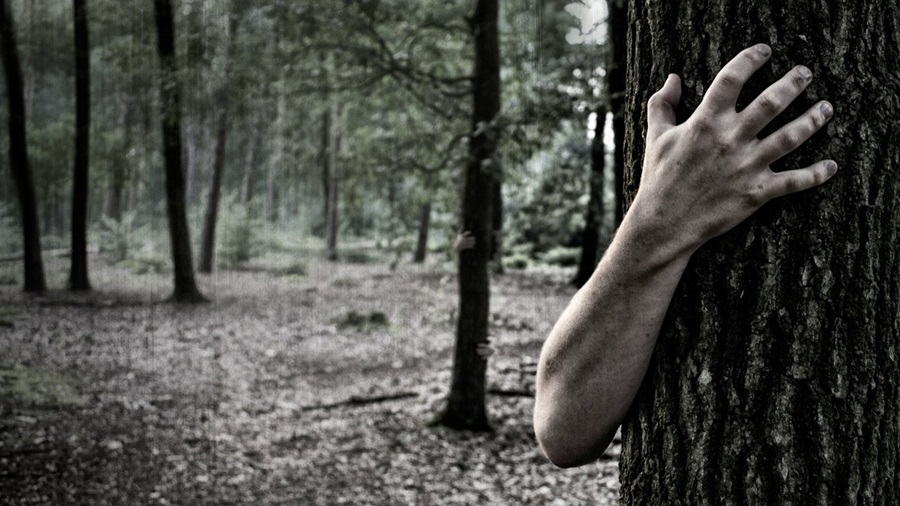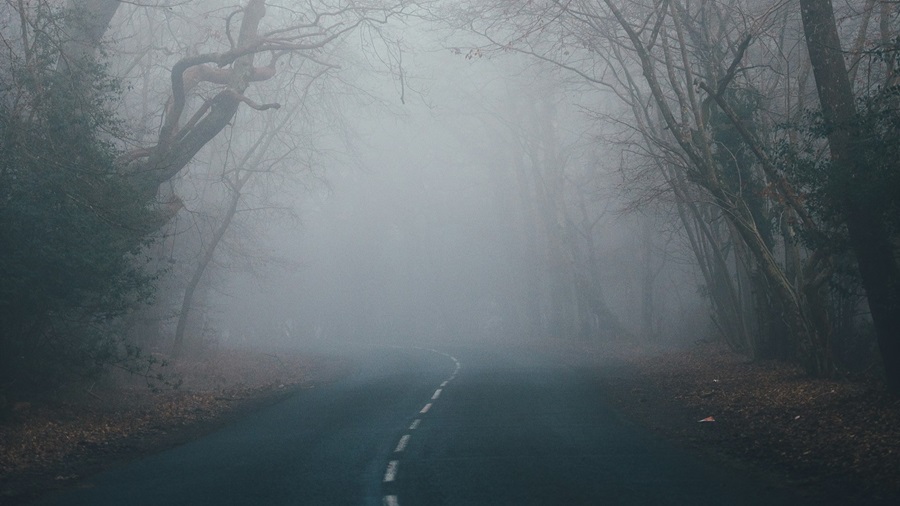It is officially Halloween season! And for this writer, that means it’s time for spooky stories to take center stage. I’ve written some horror in my time, but no matter what genre you write, keeping your reader on the edge of their seat and turning pages is ALWAYS a good thing. And perhaps the best way to keep readers engaged is by writing suspense.
What Exactly Is Suspense?
Put simply, suspense is tension in a story. It’s that feeling of charged uncertainty that keeps a reader reading because they just have to know what happens next. Who will die? How will they make it out of this? Will the villain win in the end? Could the killer be among them? Will they or won’t they say how they feel and live happily ever after?
While suspense is an absolute staple in thrillers and horror, suspense exists in every genre and can turn any story into a can’t-put-it-down adventure. Of course the best suspense lives in Stephen King novels where that escalating feeling of dread and can’t-look-away energy propels a plot forward. But any author can utilize suspense to make their story more exciting and compelling. Figuring out how to make a story suspenseful doesn’t come naturally to everyone though. When in doubt, it’s best to turn to the basics and put them to work.
7 Tips for Writing Suspense
Tip #1: Set the Mood
When it comes to writing suspense, atmosphere is EVERYTHING and can instantly pull a reader into a scene. We can all relate to the building unease of walking down a dark corridor and hearing a scuffle that raises our heartrate. How about the claustrophobia of stifling your breath as a predator passes right where you’re hiding? There are more subtle examples of setting the mood too. How about the anxiety of attending a party full of strangers while waiting for your secret crush to arrive? Or the tension of two rivals locked in a battle of words? What about a character trying to play it cool while hiding a dark, devastating secret from everyone in their life?

There are infinite ways to set a scene with suspense, and sometimes the more subtle it is, the better. The whole point of writing suspense is to capture that gentle simmer of anticipation that will keep a reader wondering what happens next. Here are a few practical ideas of how to do this in your writing:
- Zone in on sensory details that capture the tension.
- Choose two vivid details rather than listing all of them.
- Show the character’s emotions as stress builds.
- Lean on your setting—and set scenes where suspense can flourish.
- Include internal dialogue where possible.
- Draw attention to the unknown.
- Hone in on a character’s main fear or longing.
- Choose active words that embody the mood.
Tip #2: Foreshadow the Inevitable
Foreshadowing takes practice in writing, but when it works, it REALLY works. And yet again, this is a technique that thrives off of subtlety. Simply put, foreshadowing is when you drop tasty little bread crumbs hinting at what’s coming later in the story. Will that character betray his friends? Will those two get together? Are the scandalous letters hidden in that typewriter Grandma never fixed? Could THAT abandoned coffee shop be where the murderous climax will happen? Whatever cool twist your story has to offer, foreshadowing it with little hints along the way is a scrumptious way to build suspense as your book unfolds.
Now granted, foreshadowing doesn’t always happen in a first draft. Sometimes it takes an edit or two to drop these hints earlier in the story, but this is a great way to reward your more astute readers who are already making predictions. If you’re unsure how to foreshadow, here are some common strategies to hint at future plot points:
- Use ironic dialogue between characters.
- Try out Chekov’s Gun.
- Drop visual cues of something that’s coming.
- Include a background character, object, or event that will become important.
- Use symbolism when designing your characters and setting.
- Include conventions like flashbacks, flash forwards, or prophecies to show something out of time.
Tip #3: Use Cliffhangers
This is a tip I feel particularly passionate about because I used to be terrible at it. I used to write books like I was writing an episodic TV show. Every time I ended a chapter, I neatly wrapped up the action into a cozy conclusion. When you’re writing suspense, this is exactly what you SHOULDN’T do.
Instead, use every single chapter ending to propel your reader forward. End your chapter when something big is about to happen or when something just happened. This leaves your reader asking “then what?” as they dive into the next scene. And as the dramatic action rises higher and higher and your reader keeps on flipping pages and devouring chapters, pretty soon they’ll be galloping toward the conclusion after reading your whole book. Many readers like to keep reading until they hit a chapter break, and if your book demands for the next chapter to be read, it’s likely you’ve got a page-turner on your hands.

Tip #4: Keep Secrets
Is there anything better than a big reveal just waiting to spring forth in all its glory? Keeping secrets from both your characters and your reader on occasion is a fantastic way to build suspense and keep the tension alive. But I should caution that secret-keeping in a book can get out of hand. You never want to go all the way until your climax without revealing anything. Being coy with your reader is a recipe for people tossing your book aside in frustration. I’m generally an advocate of showing more of your secrets than you originally planned as your plot unfolds to keep your reader engaged. But the juiciest secrets should be kept close until the perfect moment.
Especially when writing mystery and horror, having one big unanswered question is what drives the plot forward. I’m also a fan of complex, messy characters who clearly have a secret, but aren’t ready to reveal it just yet. That’s another handy way to keep your readers guessing until you show all your cards at the proper moment. But you don’t have to reveal everything in your story. Sometimes a character’s full backstory isn’t important to the main plot. But definitely keep a secret or two to maximize suspense and delight your readers when it finally comes to light.
Tip #5: Use Dramatic Irony
On the flipside of keeping secrets, sometimes you’ll want to purposely reveal something to your reader that your characters don’t know yet. This technique is called dramatic irony and is a powerful way to up the suspense in your story in critical places. The group of heroes doesn’t know yet that the villain has learned of their plans—and is plotting an ambush.

Dramatic irony is particularly effective when there are different points of view in a story, especially two parallel stories unfolding side by side until they collide. This is an awesome way to write suspense, but once again, subtlety is key. If dramatic irony makes no logical sense or is SO obvious that it makes the characters look stupid, that isn’t suspenseful. It’s just annoying.
Tip #6: Move the Plot Forward in Every Single Scene
This is some of the best advice I’ve ever received about writing, and it definitely applies to writing suspense. Nothing kills suspense faster than sleepy, superfluous scenes that probably need to be cut in the editing process. Not every single scene needs to be action-packed, but every scene should be there for a reason and move us forward, forward, forward.
To help you evaluate if a scene is adding to the suspense rather than hindering it, ask yourself these questions:
- Does this scene develop my characters?
- Does this scene give more information?
- Does this scene further my plot?
A scene can do all three of these things at once, but if it isn’t doing any of these things? Then it needs to be cut. More likely than not, it’s strangling your suspense and tripping up the flow of your story.
Tip #7: Raise the Stakes
Of all the techniques of writing suspense, this is probably my favorite as a reader. Is there anything better than thinking you know the worst case scenario of a story and then finding out you were wrong? Suddenly it’s WAY worse than you realized, and you’re racing to get to the end.
Maybe the protagonist knew their reputation was on the line—then they discover it’s their life. Or perhaps a character is fighting to save their family business only to discover that the whole town needs saving, gasp! Or how about a heroine thinking she’s rescuing a stranger only to discover that the person in distress is actually her true love. Whatever stakes you’re raising, this is sure to raise the suspense too.

So Why Not Practice Writing Suspense This Month?
As Halloween creeps closer and closer each night, it seems like an appropriate season to write a suspenseful story. I know I will be. ❧




